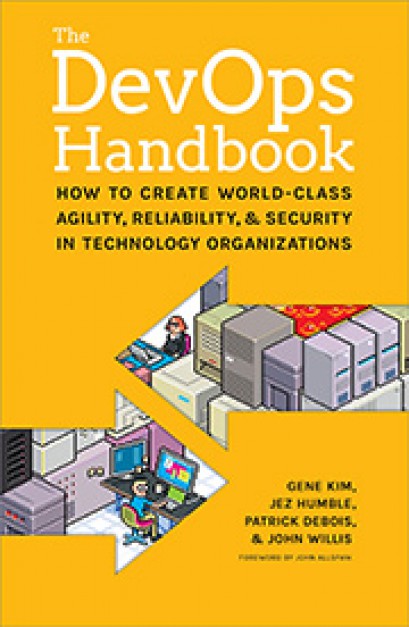12 June 2023

In today's rapidly evolving digital landscape, organisations face an ever-increasing number of sophisticated cyber threats. The traditional approach of addressing security concerns as an afterthought in the software development process is no longer sufficient. Enter DevSecOps, a transformative practice that brings security to the forefront of application development.
DevSecOps, is an emerging and highly relevant approach to ensure robust application security (AppSec) by incorporating security measures at the initial stages of the software development life cycle (SDLC) (Synopsys, 2023). It goes beyond traditional practices by fostering enhanced collaboration between development and operations teams and integrating security experts into the software delivery cycle. DevSecOps entails a transformative shift in culture, processes, and tooling across these key functional teams, thereby establishing security as a collective responsibility. Each participant involved in the SDLC assumes a vital role in seamlessly integrating security measures into the DevOps continuous integration and continuous delivery (CI/CD) workflow (Synopsys, 2023).
With the proliferation of interconnected systems, cloud technologies, and mobile applications, the attack surface for potential security breaches has expanded exponentially. Cybercriminals are continuously devising new methods to exploit vulnerabilities, making it crucial for organisations to adopt a proactive security stance. DevSecOps stands as a vital approach to integrating security measures throughout the software development life cycle, shifting from reactive security practices to a more proactive and collaborative model.
DevSecOps is of paramount importance as it incorporates security into the SDLC at an early stage and with intention. By prioritising security during the development process, organisations can easily identify and rectify vulnerabilities before they escalate in production or post-release, resulting in reduced costs and effort. Implementing DevSecOps facilitates the integration of development, security, and operations teams across various industries, enabling the faster release of secure software.
Automotive: DevSecOps streamlines the development process, ensuring adherence to software compliance standards such as MISRA and AUTOSAR (IBM Developer, 2022). This approach reduces cycle times while maintaining robust security measures.
Healthcare: DevSecOps plays a pivotal role in driving digital transformation initiatives while upholding the privacy and security of sensitive patient data, as mandated by regulations such as HIPAA (IBM Developer, 2022). It allows healthcare organisations to embrace technological advancements securely.
Financial, Retail, and E-commerce: DevSecOps is instrumental in addressing the web application security risks outlined in the OWASP Top 10 (OWASP, 2023). Additionally, it ensures compliance with the Payment Card Industry Data Security Standard (PCI DSS) for secure transactions between consumers, retailers, and financial services, bolstering data privacy and security.
Embedded, Networked, Dedicated, Consumer, and IoT Devices: DevSecOps empowers developers to write secure code that minimises the occurrence of the most dangerous software errors listed in the CWE Top 25 (IBM Developer, 2022). This approach enhances the security of embedded systems, networked devices, dedicated platforms, consumer products, and IoT devices.
DevSecOps emphasises introducing security considerations early in the software development life cycle (SDLC). By embedding security principles from the start, organisations can identify and address vulnerabilities at their root, reducing the risk of costly breaches later on (Bright, 2023). This proactive approach ensures that security becomes an inherent part of the development process, rather than an add-on at the end.
One of the key tenets of DevSecOps is fostering collaboration between development, operations, and security teams (DevOps.com, 2023). Breaking down silos and encouraging cross-functional communication allows for a more holistic understanding of security requirements and enables the identification of potential vulnerabilities throughout the development pipeline. By involving security teams throughout the SDLC, organisations can benefit from their expertise and ensure that security measures are integrated seamlessly.
DevSecOps requires a cultural shift within organisations, transforming the mindset from viewing security as a barrier to perceiving it as a shared responsibility. It calls for a change in the overall development process, integrating security checkpoints and automated security testing at each stage. CI/CD pipelines become an ideal framework for implementing DevSecOps practices, allowing for rapid and secure software deployment (DevOps.com, 2023).
DevSecOps automation refers to the streamlined incorporation of security practices into DevOps CI/CD pipelines (Opsera, 2023). This automated approach significantly diminishes the occurrence of errors that may arise when security assessments are conducted manually (Opsera, 2023). Automation plays a pivotal role in implementing DevSecOps effectively. By automating security checks, vulnerability scanning, and code analysis, organisations can identify and remediate issues in real-time. Various tools and technologies are available to assist in automating security processes, ensuring compliance, and continuously monitoring the software ecosystem for potential threats.
DevSecOps is a crucial approach in the age of increasing cyber threats. By integrating security practices at the early stages of the SDLC, organisations can proactively address vulnerabilities and strengthen their overall security posture. DevSecOps promotes collaboration and shared responsibility among development, operations, and security teams, fostering a culture of security awareness and cooperation. This cultural shift, along with process transformation and the use of automation and tools, allows for faster and more secure software delivery. The benefits of DevSecOps include enhanced security, faster time to market, and improved collaboration. As the digital landscape continues to evolve, embracing DevSecOps is essential for organisations to fortify their tech defences and effectively mitigate the risks posed by cyber threats.

